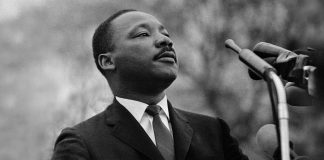Tears, war, and tulips: a day among the Ukrainian refugees at the Siret Customs Point
The wind is blowing and it is snowing at the Siret Customs Point. Refugee groups stream by, women with children clinging to them, and the words of a little girl from another war, concluded almost eight decades ago, keep running through my mind: “And this was imprinted in my mind, that when my father is not home, it is war.”
Proximity to death
"Brothers and sisters, we do not want you to be uninformed about those who sleep in death, so that you do not grieve like the rest of mankind, who have no hope" (1 Thessalonians 4:13).
Understanding ourselves better, by understanding our dreams
Ever since ancient times, people have been interested in the origin and purpose of dreams. The initial theories relied heavily on the supernatural and dreams were seen as mental meeting places for gods and mortals, where gods could express their will to mortals, reveal the future to them, or deliver messages from the afterlife.
One lottery ticket and an unexpected ending
Whether we admit it or not, our lives are conditioned by money—mostly by the lack thereof. There are few who manage to snatch themselves out from under its spell, and even fewer who want it just to be able to give it away. Among the latter is Rachel Lapierre.
Incurable faith
If we take an honest look around us and within ourselves, we discover that the gulf between the mentality of those who choose prayer over medical treatment and the essence of the Christian mindset is not as deep as it seems. But it remains a gulf nonetheless.
The Pentecostal movement: Pentecostalism and the Reformation
Pentecostalism has its origin in the Greek word Pentecost, which means “fifty” and refers to the receiving of the Holy Spirit by the apostles on the feast of Pentecost in Jerusalem, followed by speaking in tongues (glossolalia). However, this Pentecostal phenomenon predates the Pentecostal movement which began at the beginning of the 20th century.
Martin Luther King, Jr. | What have we to do with heroes?
On August 28, 2011, when the Martin Luther King, Jr. Memorial was opened to the public in Washington D.C., 48 years had passed since the famous “I have a dream” speech by the young African-American Baptist pastor.
Never forgotten by His heart
The sermons. My mother’s stories. The little sand table and Sabbath School for children. Adults’ conversations about religion. All the information I absorbed in childhood helped me sketch an image of Jesus with one major flaw: it was rendered in far too many shades of grey.
Sebastian Castellio
When the Scottish reformer John Knox, Calvin’s disciple, wrote in 1560 in favour of the death penalty for heretics, he was attacking Sebastian Castellio in particular. John Knox did not know then that he was attacking the father of the idea of religious freedom in Christianity.
The God of all | The divine vision on our differences
The first part of my life was marked by multiple barriers that placed me in a minority status.
In praise of the ordinary
What image comes to mind when you hear the word success? A blue-suited CEO? Internet billionaire Mark Zuckerberg? Perhaps Mother Teresa or Nelson Mandela? But if you’re like me, you probably didn’t think of a person living an unglamorous, day-to-day, ordinary life.
What’s growing on your family tree?
From a distance, it looked like a simple picture of a tree: nothing very artistic—more of a sketch in subtle shades of brown and green. But as I looked closer I noticed something unusual. The tree had been constructed out of words and phrases. Someone had collected snippets of information about their family and their ancestors, and written it down to form the...
Evolution before our very eyes | Part 2
Bacteria are becoming increasingly resistant to antibiotics; some butterflies and fish are developing new colours for better camouflage; and a series of laboratory experiments have revealed small but significant changes in various microorganisms. Are these phenomena conclusive evidence of evolution unfolding before our eyes?
How do we build resilience in our children?
On 29 May 2023, photographer Oleksandr Kuchynskyi filmed a group of children in Kiev fleeing to a shelter during an air raid.
In search of the real Jesus
The tempest in our teacup, the controversy over religious education, has stirred up anger and debate not only about the fairness of filling in a form, but also about the role and purpose of religion in children's lives.


























